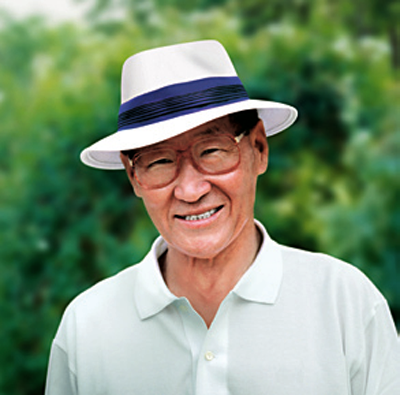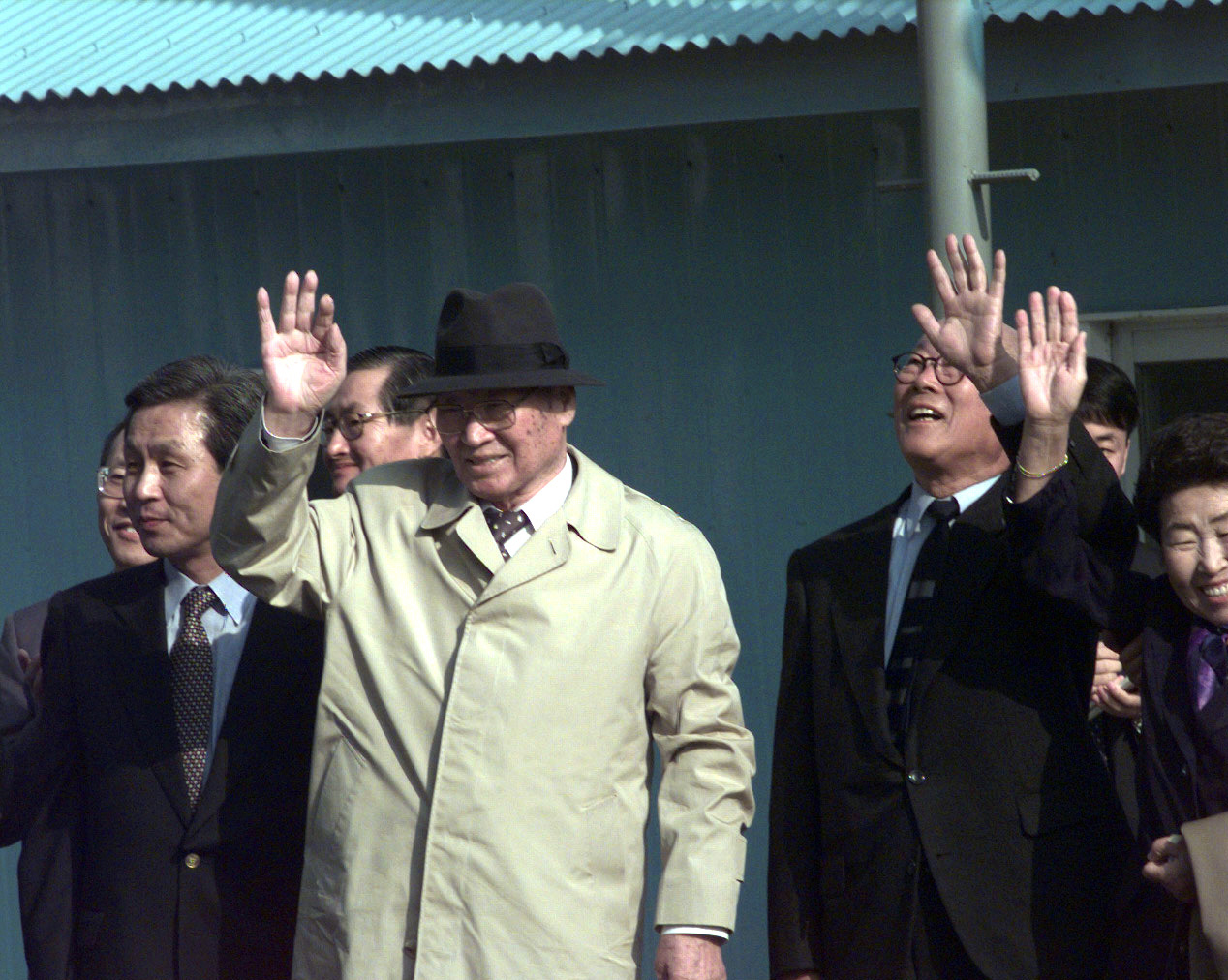Biography of Chung Ju-yung
Biography of Chung Ju-yung

Chung Ju-yung (Hangul: 정주영, Hanja: 鄭周永, November 25, 1915 – March 21, 2001) was a South Korean industrialist, businessman, billionaire and philanthropist – founder of Hyundai Heavy Industries (the predecessor of today's Hyundai Group) - the second largest multinational corporation (Chaebol) in Korea after Samsung. He is one of the pioneering industrialists in the auto industry, as well as one of the most influential figures on the Korean economy in general, as well as with great personal contributions. in the recovery and rise of this country in the following decades.
Life
Childhood
He was born into a poor farming family in Tongchon Province, North Korea (now part of the Democratic People's Republic of Korea, a province bordering South Korea). Chung Ju-yung is the eldest of six children in the family. As a young boy, he dreamed of becoming a teacher, but his dream was left unfinished due to poverty. Despite these difficulties, whenever he had free time in the fields, he continued to attend a local Confucian school led by his grandfather as a classroom teacher.
His entrepreneurial talent was evident during his trips into the city to sell goods. The fast pace of urban life and the newspaper articles he read brightened his mind and he quickly grew bored with the poverty he and his family had to endure. At the age of 16, Chung Ju-Yung and a friend decided to go to Chongjin City to work in hopes of escaping the difficult reality of farming life. After going through a 15-mile road through the most dangerous parts of the Paechun valley, the couple reached the town of Kowon. Here two people were accepted as construction workers. Although he has to work a lot and the salary is low, Chung Ju-Yung still enjoys the fact that he can still earn money independently. The two continued to do this work for two months until his father came to the city to arrest him.
Second escape
The trip that Chung Ju-Yung and his friend made earlier made him realize his true passion is civil engineering. When he returned to Asan, he planned to escape from home again, this time to Seoul. Along with two companions, Chung Ju-Yung fled home to Seoul in April 1933. The failure of this voyage seems to have been known from the outset, especially since one of the two companions was recaptured in the first place. Painted without hope, the other two were tricked by a foreigner to promise to work but stole all the money they brought with them. The trip ends when Chung Ju-Yung's father finds the two.
Third attempt
Thus, Chung Ju-Yung returned to Asan again and stayed there for a year helping his father with the farm work. When the job was over, he decided it was time to try again to get out of poverty. He managed to get a train ticket for 70 Won by selling his father's cows. Upon arriving in Seoul, Chung Ju-Yung enrolls in a vocational school in hopes of becoming an accountant. Things went smoothly for two months after that, when his father came to find him again. After a small argument, he was sent back to Asan.
Rice trader
In 1933, at the age of 18, Chung Ju-Yung decided to make his fourth escape. He ran away at night with a friend who was trying to escape an arranged marriage against his will. When Chung Ju-Yung arrived in Seoul, he accepted any job he could find. He first worked as a janitor in the port of Incheon, then became a construction worker at Boseong Vocational School.
After working in the syrup factory for almost a year, Chung Ju-Yung moved on to work as a delivery man for the Bokheung rice shop (Revival Chamber of Commerce) in Seoul. This new job helped him get promotions and he decided to work here full-time. He often received compliments from the store's important customers and this pleased the owner who gave him the accounting job after only six months of work. The accounting experience at the rice warehouse then helped him a lot in his future business and business.
In 1937, the owner of the rice shop did not want to continue the business because of his son's debauchery and decided to hand over the entire rice store to Chung Ju-Yung to return to Manchuria. At the age of 22, Chung Ju-Yung became the owner of a rice shop and changed the store's name to Kyungil Rice Shop (The First Business Association). Thanks to the quality reputation, the business in the store is very prosperous. Two years later, in July 1937, the Lu Gouqiao incident occurred, and this conflict then spread to a full extent. Until December 1939, the rice distribution regime was announced, all rice shops in the country were forced to close.
A-do car repair workshop
Chung Ju-Yung returned to the village when his rice business failed and remained there until 1940, when he decided to return to Seoul. After considering the restrictions imposed by the Japanese government on Koreans in certain industries, he decided to enter the car repair business. Using a car repair shop bought by a friend, Chung Ju-Yung started A-do Car Repair Workshop with a loan of only 3,000 Won. In three years, the number of employees increased from 20 to 70 people and he was able to make a great profit. In 1943, the Japanese occupation government forced the repair shop to merge with a steel factory. Although his business was on the road to decline due to the oppression of the Japanese, he still returned to Asan with a savings of more than 50,000 Won and continued to wait for new opportunities.
Hyundai

In 1946, after the Korean peninsula was liberated by the allied army from Japanese imperialism, Chung Ju-Yung started to establish Hyundai (originally named Hyundai Civil Industry Company) when predict the reconstruction and industrialization of the post-war period. Chung Ju-Yung won government contracts and became responsible for the construction of much of South Korea's transportation infrastructure including the Soyang hydroelectric dam in 1967, the Gyeongbuk highway in 1970, the world's largest shipyard in Ulsan, the Kori nuclear power plant and many other important works. Chung Ju-Yung also won US military contracts to build structures for them because his younger brother can speak English fluently and has a very good relationship with US military engineers. .
During the North Korean invasion in 1950, Chung Ju-Yung was forced to abandon his construction projects and fled with his son to Busan. There, he continued to build the company by doing all the work he could get from the United Nations Force and the Korean Ministry of Transport. When Seoul was recaptured by United Nations forces, Chung Ju-Yung returned to rebuild the company and he continued to receive more contracts from the Americans.
From then on, Chung Ju-Yung continued to grow and diversify the company to become an important conglomerate in Korea. Although he had no experience in shipbuilding, he decided to build the world's largest shipyard in Ulsan. The first product was completed three years later (five years faster than planned) because he built the shipyard and built the ship at the same time.
Dubai Industrial Port
In December 1975, Chung Ju-Yung and a delegation of Hyundai successfully bid for the construction of Dubai industrial port (United Arab Emirates) for $930,140,000.
Chonshu Bay Water Barrier
On February 25, 1984, as the head of Hyundai, Chung Ju-Yung successfully directed the construction of a seawall in Chonshu Bay. The success of this project brings Korea about more than 1,000,000 square meters of agricultural land.
The last years of life
From the 1980s until recently, Hyundai was divided into several satellite groups. Chung Ju-Yung has had a very successful career. He sent 1001 cows across the Demilitarized Zone to North Korea. He was also the first person to initiate the Geumgangsan tour program. He is also the developer of the PONY model, the Hyundai Pony is Hyundai's first self-assembled car and this is the beginning of the Hyundai car company. He also founded the Hyundai steel company.
His philanthropy sets him apart from all other entrepreneurs of his generation. In 1977, he established the "Asan Fund" with a scale of operations comparable to the large Ford or Rockefeller funds.
The Asan Foundation is organized into four main areas of activity: medical assistance, social security, research and development, and scholarship funds. Through these great efforts, the Asan Foundation has established nine hospitals in Korea, established the Ulsan University School of Medicine, and financed the Asan Life Science Research Institute. The Asan Foundation also initiates collaborative arrangements between industry and research institutes by supporting scientific research such as the Sinyoung Research Foundation.
Political activities
Chung Ju-Yung is recognized for his important work in successfully lobbying for Korea to host the 1988 Summer Olympics. This success highlights the success of the Chung Ju-Yung generation in the eyes of the world. outside world and became a source of great pride for the people of Seoul. In 1992, the International Olympic Committee awarded him the IOC Medal for his great contributions to sports and the image of Korea.
Chung Ju-Yung also contributed to the normalization between the two Koreas. In 1998, at the age of 82, Chung Ju-Yung was still working with the Korean government to provide economic assistance to the North, at that time, South Korean President Kim Dae-jung wanted to provide more than $100 million. dollars as a way to trap North Korea's economy, but President Kim could not find a reasonable way to channel the funds. He then turned to Chung Ju-Yung, who had successfully negotiated a cooperation program to boost the economy and support great development with the North. Kim Dae-jung convinced him to increase this investment of more than $100 million, raised from a secret source of capital provided by the Korea Development Bank, a government-controlled bank. The meeting of the first historic inter-Korean summit was then conducted, and Chung Ju-Yung crossed the Korean-Korean border with 500 "unification cows" as gifts to the North Koreans. Tien.
Die
Chung Ju-Yung died at the age of 85 at his home in Seoul and was buried and buried according to traditional Buddhist and Confucian rites[6]. His wife, Byun Joong-seok, died on August 17, 2007, partly from complications of heart disease, she was buried in the family cemetery in Hanam with her husband and son. me.
Thanks for watching!